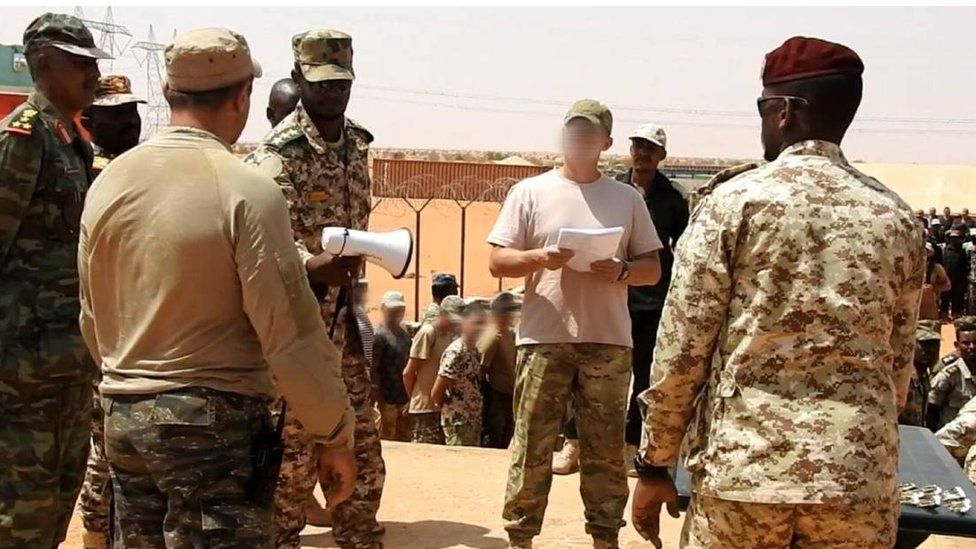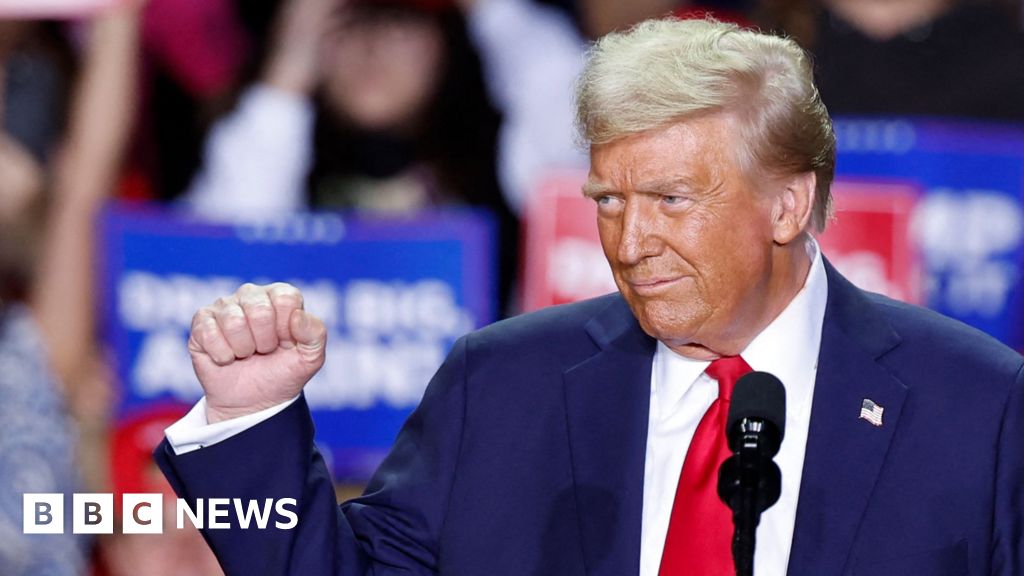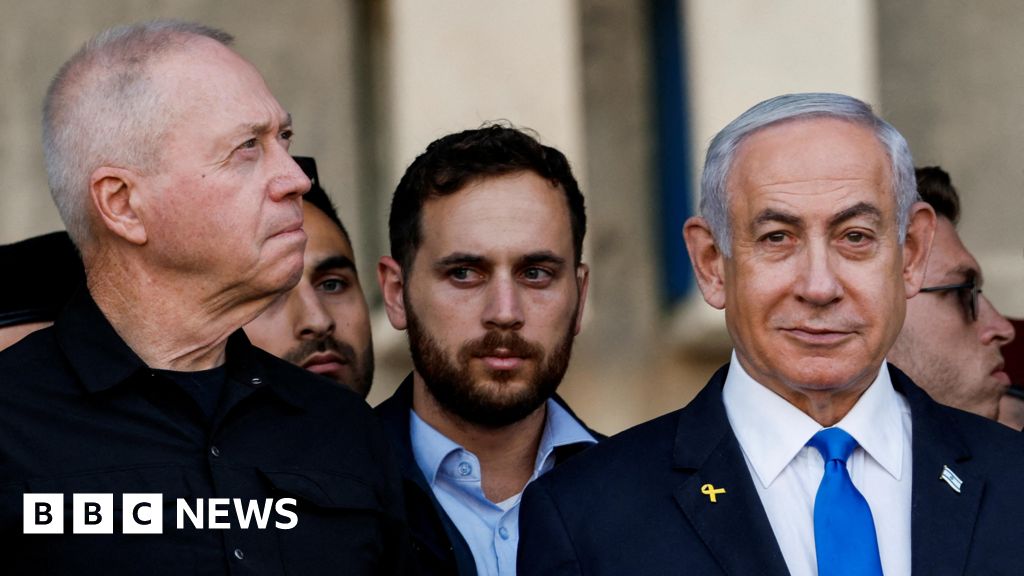ARTICLE AD BOX

By Jake Horton, Peter Mwai & Grigor Atanesian
BBC News
Russia's Wagner mercenary force is accused of having various commercial and military ties to Sudan, but the group denies any involvement in the current conflict in the country.
Yevgeny Prighozin - who has close links to President Vladimir Putin - has said that "not a single Wagner PMC [private military company] fighter has been present in Sudan" for over two years.
We've found no evidence that Russian mercenaries are currently inside the country. But there is evidence of Wagner's previous activities in Sudan, and Mr Prighozin's operations in the country have been targeted by both US and EU sanctions.
Gold-mining deals
In 2017, Sudan's then President Omar al-Bashir signed a series of deals with the Russian government during a visit to Moscow.
These included an agreement for Russia to set up a naval base at Port Sudan on the Red Sea, as well as "concession agreements on gold mining between Russian company M Invest and the Sudanese Ministry of Minerals".
The US Treasury alleges that M Invest and a subsidiary group, Meroe Gold, are fronts for the activities of the Wagner Group in Sudan, Africa's third-biggest gold producer.
"Yevgeniy Prigozhin and his network are exploiting Sudan's natural resources for personal gain and spreading malign influence around the globe," said then Treasury Secretary Steven Mnuchin in 2020.
Both M Invest and Meroe have been specifically targeted by US sanctions.
According to an investigation by CNN, gold has been transported overland to Central African Republic, where Wagner is known to operate - exports not recorded in Sudanese official trade data.
Significant amounts of gold have also been smuggled out via a network of military airports, according to a report last year in the Daily Telegraph.
What else has Wagner been doing in Sudan?
Since 2017, Russian and international sources have published images that appear to locate Russian mercenaries inside Sudan.
These are said to show them acting in various roles, including training Sudanese soldiers or allegedly helping the security forces crack down on protests. The BBC has not independently verified these images.
In 2021, a Wagner-linked Telegram channel published images featuring an unnamed top Wagner commander awarding Sudanese soldiers memorabilia at a ceremony held two years earlier.
Image source, Telegram
Image caption,Top Wagner commander reportedly with Sudanese soldiers in 2019
And in July 2022, this channel distributed a video allegedly showing Wagner mercenaries conducting parachute-landing exercises for Sudanese forces.
The same source linked to the Instagram profile of an anonymous Russian mercenary, calling himself a "freelancer" and sharing stories of his exploits in Sudan in posts from August and October 2021.
In a 2020 Wagner propaganda action film, Sudan was featured as one of the countries where the mercenaries operate.
How influential has Wagner been?
The US Treasury says the Wagner Group has conducted "paramilitary operations, support for preserving authoritarian regimes, and exploitation of natural resources".
"Initially, in 2018, they had about 100 men actively training Sudanese military forces, and the relationship has grown from there," says Dr Joana de Deus Pereira of the UK-based Royal United Services Institute.
Sudanese media reports says that figure grew to about 500, and they were mainly stationed in the south-west near Um Dafuq, close to Sudan's border with the Central African Republic (CAR).
The Sudan Tribune reported that when President Bashir faced popular protests in 2019, "Russian fighters" were deployed to observe anti-government protests alongside Sudanese intelligence and security services, although this was denied by the Sudanese authorities.
Shifting allegiances
The Wagner Group devised its own media campaigns to help President Bashir stay in power, says Dr Samuel Ramani, author of a book about Russia's activities in Africa.
"Prigozhin was calling for… the protestors to be accused of being pro-Israel and anti-Islamic," he says.
Image source, AFP
Image caption,Protesters in 2019 demanding the removal of President Omar al-Bashir
This caused friction with the president's own security forces, and so Wagner switched its support to the man who ousted him - General Abdel Fattah al-Burhan.
"While the Foreign Ministry in Moscow was against the coup, Prigozhin and the Wagner Group actually welcomed al-Burhan's takeover," says Dr Ramani.
According to Dr Ramani, it was in 2021 and 2022 that the Wagner Group increased its connections with the Rapid Support Forces (RSF), which is currently fighting Sudan's regular army, led by Gen Burhan.
Mr Prigozhin was interested in sourcing more gold through mines recently acquired by the RSF's leader, Mohamed Hamdan Dagalo, widely known as Hemedti.
Last year, Hemedti visited Moscow, saying he hoped to bolster ties between Sudan and Russia.
However, Kholood Khair of Confluence Advisory, a think-tank on Sudanese affairs, believes the Wagner Group is not choosing sides in the current conflict.
"Wagner has had links to both General al-Burhan's enterprises and to Mr Hemedti's enterprises to different extents and in different ways," she says.
Wagner's presence elsewhere in Africa
Wagner fighters have widely reported to have been in the Central African Republic (CAR) for several years, guarding the country's diamond mines, as well as in Libya and Mali.
A BBC investigation in 2021 found evidence of their involvement in Libya's civil war from a digital device left behind by a Wagner fighter and from speaking to Libyan soldiers and civilians.
In Mali, the government has turned to Wagner to help battle Islamist militants, although it has never officially acknowledged the group's presence.
Human Rights Watch (HRW) has accused Russian mercenaries of serious abuses, both in CAR and Mali, including torture and killings.
Additional reporting by Jeremy Howell and Daniele Palumbo

 1 year ago
70
1 year ago
70








 English (US)
English (US)